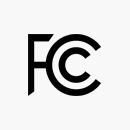Global Certification
No.1 of certification consulting performance in Korea, the consulting institution registered at the MSS
No.1 of certification consulting performance in Korea, the consulting institution registered at the MSS


The FCC is in charge of communications in the private sector. To promote the efficient use and management of radio resources, the FCC regulates unnecessary radio waves from major electrical and electronic products to prevent interference with public communications. These regulations are enforced in accordance with the Federal Communications Act. Upon violation, pursuant to the Act, strong sanctions are levied on the overall distribution process, including import, sale, display, and advertisement, of the product. As such, it is impossible to export a product to the US without FCC certification. In other words, FCC certification is essential for companies looking to export a product to the US.
Relevant regulations that require FCC certification are stipulated in Code of Federal Register (CFR) Title 47 (Telecommunications).
| Sort | Details |
|---|---|
| Part 2 | Frequency Allocations and Radio Treat Matters General Rules and Regulations |
| Part 15 | Radio Frequency Devices |
| Part 18 | Industrial, Scientific and Medical equipment |
| Part 68 | Connect on of Terminal Equipment to the Telephone Network |
| Part 95 | Personal Radio Services |
FCC certification does not apply uniformly to all target devices. Different certification procedures apply for different types of products.
If a product is tested and approved according to the technical standards set by the FCC, the manufacturer can ship the product upon attaching the certification mark without specific approval from the FCC - attach certification mark based on Declaration of Conformity only.

In order to use the DOC system, the manufacturer must declare the conformity of its product through a third party in the US upon conducting a standard conformance test at an accredited test lab (accredited by the National Voluntary Laboratory Accreditation Program). Unlike the existing certification method that follows the Certification system, if the DOC procedure is used, the fact that the product meets the FCC's technical standards should be permanently attached to the product in a location that is clear and easy to see. For products that have passed FCC standards using the DOC system, the FCC may request a third party to take measures linked to the mass production, distribution, and use of the product, including corrections and supplements based on product investigation results and defects. Also, if needed, the FCC may request a sample of the product at any given time. Failure to submit related data may result in fines or administrative sanctions, and test data must be submitted within 14 days, while samples must be submitted within 60 days.
The Sampling and Measurement Branch system tests products collected from the market for follow-up of all products imported into the US. Recently, the FCC has strengthened its follow-up management every year. If a company/product fails the follow-up management criteria, the FCC revokes the product’s approval, suspends its sale on the market, recalls all products, and levies a fine.